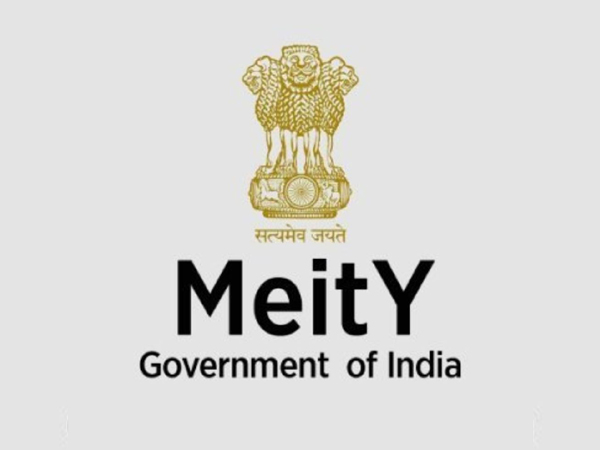Post-Budget Webinar on Union Budget 2025-26: Breakout Session on Exports Outlines Strategic Roadmap for Enhancing India’s Global Trade Competitiveness
The session commenced with an address by the Prime Minister of India, who underscored the transformative impact of the Union Budget 2025-26 in fostering a reform-oriented economic agenda.

- Country:
- India
As part of the Post-Budget Webinar on the Union Budget 2025-26, organized by NITI Aayog, a series of outreach sessions focusing on Manufacturing, Exports, and Nuclear Energy Missions were held successfully on March 4, 2025. The Exports session, led by the Ministry of Commerce & Industry in consultation with the Ministry of Electronics & Information Technology (MeitY), served as a crucial platform for industry leaders, exporters, entrepreneurs, and policymakers to deliberate on strategies aimed at enhancing India’s export potential and global trade competitiveness.
Prime Minister’s Address: A Call for Innovation in Export Promotion
The session commenced with an address by the Prime Minister of India, who underscored the transformative impact of the Union Budget 2025-26 in fostering a reform-oriented economic agenda. He highlighted the government’s unwavering commitment to creating an enabling and nurturing ecosystem to promote Manufacturing and Exports. Encouraging stakeholders to contribute innovative ideas, the Prime Minister emphasized the importance of collective policy formulation and implementation to enhance India’s global export footprint. His insights resonated with participants and set the tone for focused discussions.
Breakout Session on Exports: Expert Panel Deliberations
The Breakout session on Exports was moderated by Shri Sanjay Nayyar, President, ASSOCHAM, and featured a distinguished panel of industry leaders, including:
- Shri Rajesh Nambiar, President, NASSCOM
- Shri Ajay Sahai, Director General, Federation of Indian Export Organization (FIEO)
- Shri Pankaj Mohindroo, President, Indian Cellular and Electronics Association (ICEA)
- Shri Kalyan Basu, Managing Director, MonetaGo
- Ms. Jyoti Vij, Director General, FICCI
- Ms. Nivruti Rai, CEO, Invest India
The panelists engaged in insightful discussions on bolstering India’s export ecosystem through policy interventions, digital innovation, and sustainable trade practices.
Key Initiatives and Strategic Recommendations for Export Growth
Export Promotion Mission (EPM)
One of the major proposals discussed was the Export Promotion Mission (EPM), a ₹2,250 crore initiative aimed at supporting MSME exporters by offering financial incentives, market access support, and compliance facilitation. The session underscored the need for a whole-of-government approach to address market access barriers and encourage the participation of new and e-commerce exporters.
Strengthening Export Credit and MSME Support Mechanisms
Policy recommendations included:
- Expansion of Export Credit Guarantee Corporation (ECGC) coverage to high-risk markets.
- Enhancement of collateral-free export credit through EXIM Bank.
- Incentivizing MSMEs to adopt sustainability standards and global certifications.
- Strengthening the Driving International Holistic Market Access Initiative (DISHA) to provide sector-specific MSME export support.
Capacity Building and Digital Trade Expansion
Participants advocated for the implementation of Export Readiness Programs to train MSMEs in e-commerce, digital marketing, and international trade regulations. Expanding the E-Commerce Niryat Credit Card Scheme was also emphasized as a strategy to support digital cross-border trade.
BharatTradeNet (BTN): A Game-Changer in Trade Facilitation
A key discussion point was the introduction of BharatTradeNet (BTN), envisioned as a Digital Public Infrastructure (DPI) initiative to create a seamless, electronic, and paperless trade ecosystem. Key recommendations for institutionalizing BTN included:
- Integration with Aadhaar, DigiLocker, UPI, and financial institutions for trade finance approvals.
- Development of a Central Trade Registry and Interoperability Framework for efficiency.
- Establishing State/District Export Cells to strengthen local export ecosystems.
- Aligning BTN with global trade facilitation standards for improved documentation and financing.
- Establishing a Special Purpose Vehicle (SPV) to prioritize BTN’s implementation.
Expanding Global Capability Centres (GCCs) Beyond Tier-1 Cities
A structured plan under the National Framework for GCCs was discussed to enhance the presence of Global Capability Centres (GCCs) in emerging Tier-2 hubs. Recommendations included:
- Reducing compliance burdens and improving the ease of doing business.
- Talent development initiatives in partnership with academia and industry.
- Tax incentives for GCCs in SEZs in Tier-2 cities.
- Aligning GCC expansion with national missions in AI, Quantum, and R&D.
- Implementing the GIFT city model for emerging GCC hubs.
Closing Remarks by Union Minister of State for Commerce and Industry
The session concluded with an address by Shri Jitin Prasada, Union Minister of State for Commerce and Industry, who reaffirmed the government’s commitment to fostering a globally competitive export ecosystem. He emphasized the importance of integrating Indian enterprises into global value chains and implementing structured policies to drive export-led growth.
Actionable Roadmap and Implementation
The Breakout Session on Exports successfully charted an actionable roadmap for strengthening India’s exports through policy reforms, infrastructure development, and digital transformation. The key takeaways and recommendations will be evaluated and implemented by the respective government departments, ensuring a sustained focus on enhancing India’s export competitiveness in the global market.
With a concerted effort from policymakers, industry leaders, and entrepreneurs, India is poised to emerge as a leading global trade powerhouse in the coming years.
- READ MORE ON:
- MeitY
- NITI Aayog










